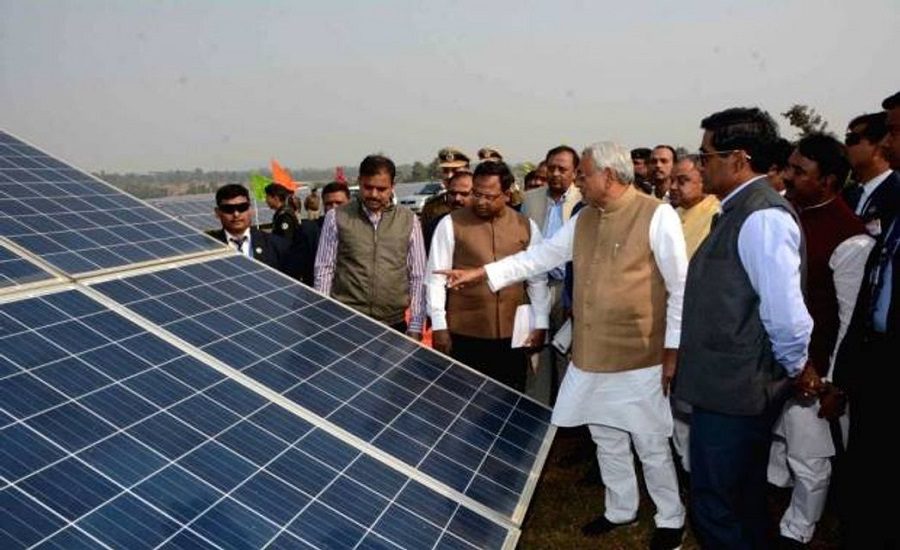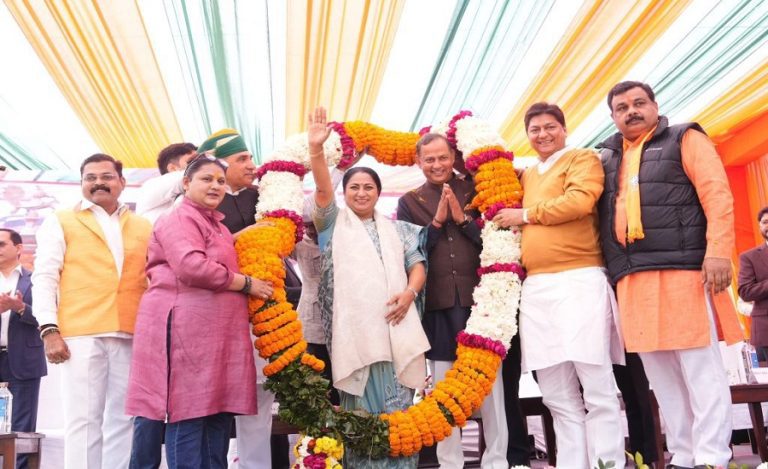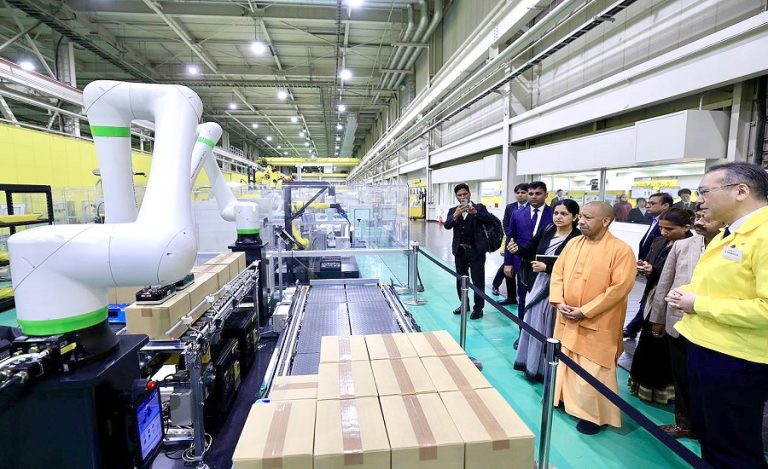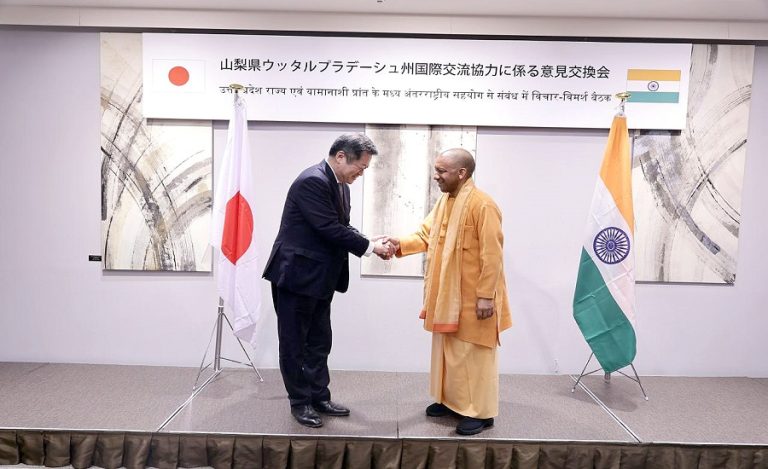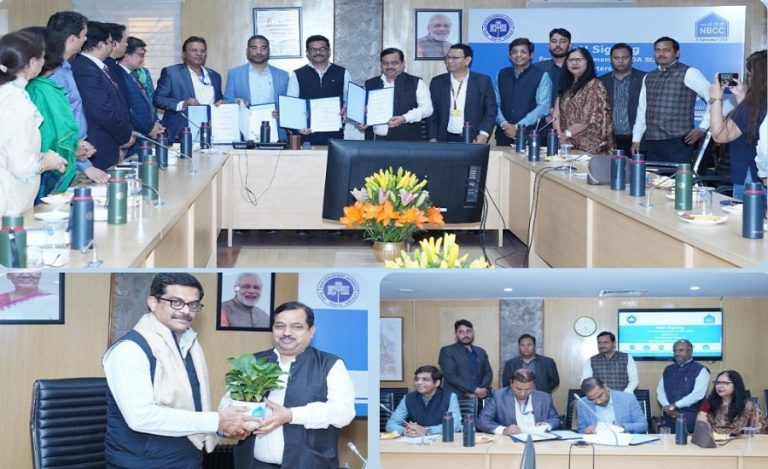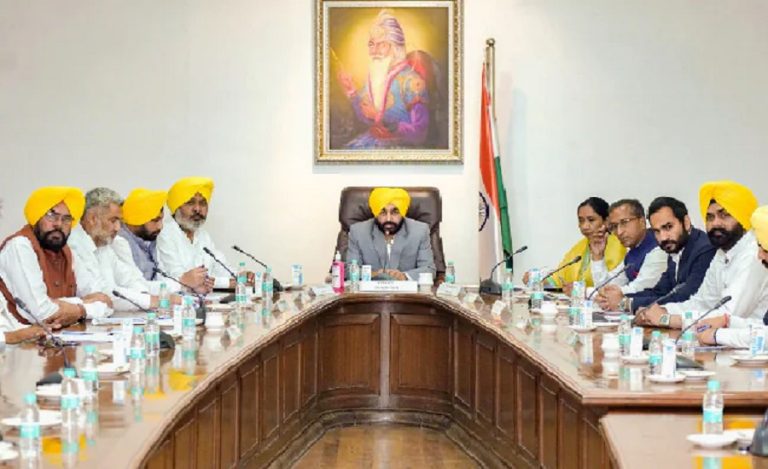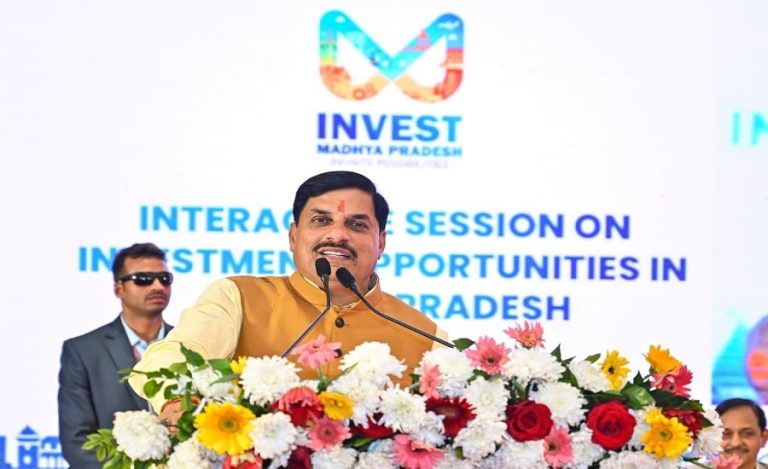Patna: Under the leadership of Chief Minister Nitish Kumar, Bihar is rapidly transitioning from energy dependency to energy self-sufficiency, placing itself firmly on the national map for clean, sustainable, and inclusive development.
What began as a mission to deliver roads, electricity, and water to every village has now evolved into a visionary push for green energy. From offering free electricity up to 125 units for households to launching the country’s largest battery-based solar power plant, Bihar is setting a new benchmark in renewable energy leadership.
India’s Largest Battery-Based Solar Plant Commissioned in Bihar
In a major boost to the state’s clean energy portfolio, Kajra in Lakhisarai district is now home to India’s largest battery-based solar power plant.
- Total capacity: 301 MW (Solar Power)
- Battery storage: 495 MWh
- Project cost: ₹1,810.34 crore
- Phases: Completed in two phases ahead of schedule
The plant’s advanced battery system stores solar power generated during the day, ensuring uninterrupted power supply even at night—a significant advantage for both urban and rural power reliability.
Empowering the Poor with Free Electricity and Solar Plant Support
To ensure that clean energy reaches the most underprivileged, the Nitish Kumar government has introduced free electricity up to 125 units for domestic consumers. Additionally, solar plant installation costs will be fully covered for poor families.
These measures provide:
- Zero electricity bills for the poor
- Energy security in rural households
- Reduction in diesel usage for farm irrigation
- Lower carbon footprint across sectors
This policy reflects Nitish Kumar’s inclusive governance, ensuring development that supports both the environment and economic upliftment.
Green Energy, Rural Relief, and Urban Stability
The government’s solar push is being felt most significantly in rural Bihar, where farmers now benefit from steady power for irrigation, and small businesses experience minimal energy disruptions. In urban areas, middle-class families are increasingly embracing solar due to rising electricity costs, seeing it as a long-term cost-saving solution.
- Farmers: Stable power for irrigation and agro-processing
- Urban households: Savings through free units and reduced dependency on grid power
- Youth: Opportunities in solar installation, maintenance, and energy tech sectors
From Solar Power to Political Power: A New Narrative for Elections
Bihar’s solar revolution is not just about energy—it’s shaping up to be a potential electoral game-changer. The Nitish Kumar government’s performance-based delivery, rather than mere promises, is resonating with voters across demographics.
Key political implications:
- Rural & poor families: Direct relief through subsidies and zero bills
- Youth & job seekers: Employment in solar tech and green infrastructure
- Middle class: Technological modernity and energy cost savings
- Environmentalists: A rare case of development aligned with sustainability
Nitish Kumar’s blend of climate responsibility and grassroots empowerment is crafting a new image: that of a sustainable, results-driven leader in Indian politics.
Bihar’s Solar Drive is Lighting Up Futures
By moving decisively toward green energy and energy independence, the Nitish Kumar-led government is rewriting Bihar’s narrative. The success of the Kajra Solar Project, alongside grassroots schemes like free power and solar access for the poor, presents a compelling model of sustainable governance.
In a political landscape often marked by populism, Bihar’s clean energy blueprint may not just power homes—it could also power public trust and electoral victory.

